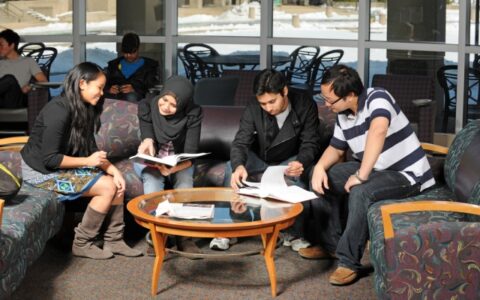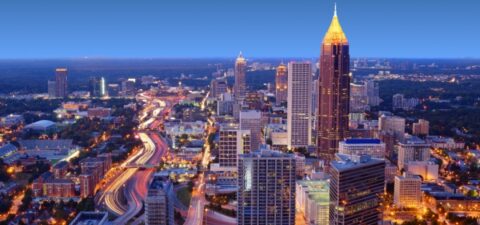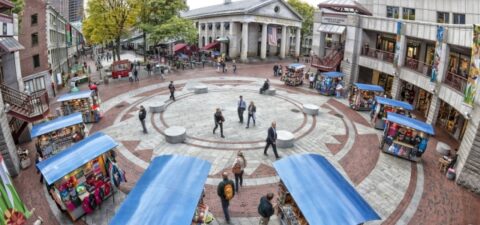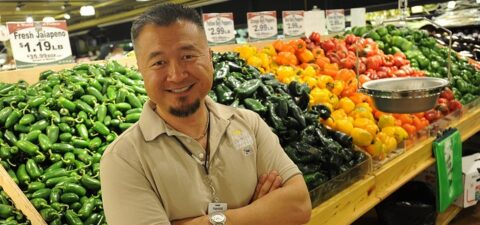Economics

Immigrant Entrepreneurs are Investors in their Communities
Cedric Francois, a medical researcher from Belgium, came to Louisville, Kentucky, after hearing that researchers there were beginning work on the first hand transplant. Later, he co-founded two pharmaceutical companies. Suhas Kulkarni, an immigrant entrepreneur himself who founded Louisville-based IT firm Omnisys, understands the need for integrating and helping immigrant entrepreneurs get their start and is leading the area’s new Refugees and Immigrants Succeeding in Entrepreneurship (RISE) initiative. This is a collaborative effort among public and private organizations to support immigrants and refugees in the entrepreneurial endeavors in the Louisville area. RISE recognizes that Louisville “has an untapped pool of talent for city-wide economic development in the form of immigrants and refugees” and that “this population has the potential of becoming drivers of economic growth” for the region. Immigrant entrepreneurs are often vital assets in communities. They start businesses, create jobs, and encourage community revitalization efforts. Immigrant businesses can help revive dilapidated or aging retail corridors. And they provide an opportunity for immigrants to reinvest in the area. Take for example Vilmar Zenzen, originally from Brazil, who is opening a new upscale Brazilian steakhouse in downtown Louisville. Zenzen already operates another Brazilian steakhouse in Knoxville, Tennessee. Read More

Licensing Barriers Leave Immigrant Doctors Driving Cabs Instead of Practicing Medicine
Instead of putting foreign medical and other advanced degrees to use in the United States, it is common among immigrant doctors and other professionals to work less skilled jobs, such as a taxi driver or waiter, because the complicated licensing process keeps them from applying their training in the U.S. market. According to a recent Migration Policy Institute (MPI) series of reports on improving credential recognition, the United States is experiencing a “brain waste” by preventing immigrants living in the country from efficiently transferring their foreign credentials. MPI’s most recent report concludes their series by exploring prospects for international recognition of foreign qualifications. Read More

Record Number of International Students Add $24 billion to U.S. Economy
A record number of international students studying in the U.S. contributed billions to the U.S. economy during the 2012-2013 academic year, according to an economic analysis by NAFSA: Association of International Educators. Over the academic year, international students and their families support 313,000 jobs and contributed $24 billion to the U.S. economy. The NAFSA report is based on enrollment data from the latest Open Doors Report from the Institute of International Education (IIE), which found that 819,644 international students studied in the U.S. during the 2012-2013 academic year. A growing number of students from China and Saudi Arabia led the 7 percent increase. And based on NAFSA’s analysis, the jump adds up to a 6.2 percent increase in job support creation and a 10 percent increase in dollars added to the U.S. economy over the previous academic year. Read More

How Immigrants on a Pathway to Citizenship can Revitalize Rust Belt Cities
Like Rust Belt cities such as Baltimore and Detroit, rural towns across America have experienced population declines in recent decades. Some places, however, are an exception to that trend thanks in part to the arrival of immigrants. For example, while other Iowa towns experienced population decline over the past several decades, West Liberty’s population grew because of immigration. As Steve Hanson, superintendent of West Liberty Community School District, notes, “in the last 20-30 years we would have had a population decline if we hadn’t had immigrants come in [for] jobs in the food manufacturing business. They provide a source of labor that wouldn’t have been there.” And West Liberty’s Mayor, Chad Thomas, said immigration has “kept a lot of storefronts and businesses open that probably otherwise would have closed.” Read More

How Would Immigration Reform Help the U.S. Economy?
A growing consensus has emerged among both liberals and conservatives that immigration reform would serve as a stimulus to the U.S. economy. Reform would not only raise the wages—and therefore the tax payments and consumer purchasing power—of newly legalized immigrants, but would ensure future flows of immigrant workers, taxpayers, and consumers that are sufficient to meet the labor-force needs of our rapidly aging society. Conversely, trying to enforce our way out of a dysfunctional immigration system only wastes taxpayer dollars while exacting a high toll in both human lives and missed economic opportunities. Read More

Report: Immigration Leads to Local Job Growth
With a nod to boosting economic growth, Atlanta—Georgia’s capital and the ninth largest metropolitan region in the United States—is embarking on a path to be more welcoming to immigrants. Earlier this week, Atlanta Mayor Kasim Reed said the city’s success is tied to the talent and engagement of all of its members, including immigrants. He also stated that the city would officially join Welcoming America’s Welcoming Cities and Counties initiative, and through this partnership, “Atlanta will continue to work on welcoming, including, and supporting the economic and social contributions of immigrants to enhance our city’s cultural fabric, economic growth and global competitiveness.” The Mayor went on to say, “Our country has always been a nation of immigrants and entrepreneurs. […] immigrants from around the world have kept our workforce vibrant and on the cutting edge […] I think that’s a pretty good message on why we should continue [to embrace] immigration.” Clearly, leaders in places like Atlanta, Detroit, and St. Louis all see the advantages of attracting immigrants and entrepreneurs and cultivating welcoming and receptive environments. But what is the underlying impetus for such initiatives? Read More

It’s Immigrant Entrepreneurship Month in Massachusetts!
Massachusetts is no stranger to the many benefits immigrant entrepreneurs bring to communities. From family owned restaurants and shops along small town main streets, to large Fortune 500 companies, immigrant-owned businesses make sizeable contributions to Massachusetts. And as a growing number of places around the country make efforts to attract and welcome immigrants, Massachusetts continues to expand the state’s efforts. October 15 marked the start of the third annual Massachusetts Immigrant Entrepreneurship Month, which will officially run through November 15. State groups—including the Immigrant Learning Center (ILC), the New Americans Integration Institute at the Massachusetts Immigrant and Advocacy Coalition (MIRA), and the state’s Office for Refugees and Immigrants—are leading the initiative, which recognizes the contributions of immigrant business owners and innovators to Massachusetts’ economic development. Read More

Four Out of Nine of this Year’s U.S. Nobel Prize Winners are Immigrants
What does an eight year old boy escaping the Nazis on a boat to the United States have in common with the award-winning chemist who taught at some of the most preeminent Universities in the United States? Easy: they’re the same person. Martin Karplus, an Austrian-born chemist who holds American citizenship was honored last week with the 2013 Nobel Prize in Chemistry. Karplus was one of the nine Americans Nobel Prize winners for sciences. Of the nine, four of them were immigrants. These awards highlight the importance of immigrants to the vitality of sciences within the United States. Read More

From Coast to Coast, Immigrants Drive Local Economies
Immigrant entrepreneurship has transformed Atlanta’s northeastern suburbs along and near Buford Highway into “International Village” – an area filled with immigrant restaurants, markets, specialty stores, and other businesses. Through ventures such as Chinatown Square, Asian Square Mall, and Plaza Fiesta immigrants have “economically and socially revived an area that faced economic stagnation and population decline.” As one researcher noted, “the five-mile stretch of highway running through Chamblee, Doraville, and Norcross constitutes the greatest concentration of ethnic-owned businesses in the southeastern U.S.” Read More

Possible Increase in Unauthorized Immigration, Brought to You by an Improving Economy
The dynamic between the economy and the size of the unauthorized population living in the United States was brought home by a new report from the Pew Research Center, which finds that the shrinking number recorded during and immediately after the Great Recession may be slightly on the rise in light of the improving economy. In their latest estimate, Pew calculates that about 11.7 million unauthorized immigrants were living in the United States in 2012 compared to the 11.3 million estimated for 2009. But what do these numbers really mean? Read More
Make a contribution
Make a direct impact on the lives of immigrants.
